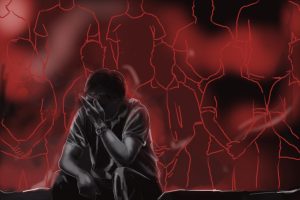Modify syllabi to accommodate unexpected circumstances
February 26, 2023
The unexpected Austin freeze left the student body in a state of disarray. Frigid temperatures made even the simplest of tasks — such as leaving one’s dorm or apartment, acquiring food, or getting out of bed — a challenging feat. The silver lining of this icy calamity was the generous number of class cancellations from Jan. 31 to Feb. 2, which provided students with much-needed respite to prioritize their well-being.
As the ice melted and the grass returned to its vibrant green hue, students were faced with yet another formidable challenge — an overwhelming avalanche of schoolwork that plunged them back into the academic grind. While professors extended a considerate hand to their students and urged them to prioritize safety over studies, students met an unexpected reality the following week. Syllabi and coursework remained the same, with the unjust expectation that students catch up on previously scheduled work.
The winter freeze’s academic fallout has proven that professors must modify their syllabi to accommodate unforeseen circumstances. Only then can professors truly accommodate their students.
Professors’ unreasonable demands left many students overwhelmed, given that the next week’s workload was much higher and the dates for upcoming quizzes and tests remained unchanged. Consequently, many students took these quizzes and tests partially unprepared because certain concepts were not taught in class.
Environmental science sophomore, Maegan Smart, recounts her experience managing the workload in the weeks following the storm.
“My classes are pretty well spaced out within the week. So it was hard to suddenly have all those assignments that would have been spread out … due that Friday, or that next Monday or Tuesday,” Smart said. “That weekend after the freeze was definitely one of the most stressful weekends of my undergraduate career.”
However, many professors who didn’t change their syllabus simply could not. Calculus professor, Julia Lindberg, discussed the calculus department’s decision to keep the course’s standardized schedule and curriculum.
“I think it’s important to standardize the curriculum expectations,” Lindberg said. “I think when you weigh the pros and cons … it’s best to stick to the schedule as much as you can.”
Lindberg went on to explain that test and quiz days are established before the semester begins to allow students to work their other obligations around them. To Lindberg, unprecedented circumstances coupled with changing schedules would have further complicated the process for students.
While professors are often well-intentioned, the reality is that shifting events requires a shifting mindset. Students who struggle to fulfill their basic needs don’t necessarily have time to review missed lessons and assignments. Professors shouldn’t maintain a syllabus structure that doesn’t care about their students.
The winter freeze exposed the fallibility of students, professors and curriculums. To make amends, professors must scrutinize their course material and remain open to revisions that accommodate life’s unpredictabilities. With the possibility of future unprecedented circumstances looming on the horizon, such adaptation is crucial. At minimum, these changes are necessary; at best, students’ well-being becomes a top priority.
Chaudhuri is a Plan II and economics freshman from Coppell, Texas.
















